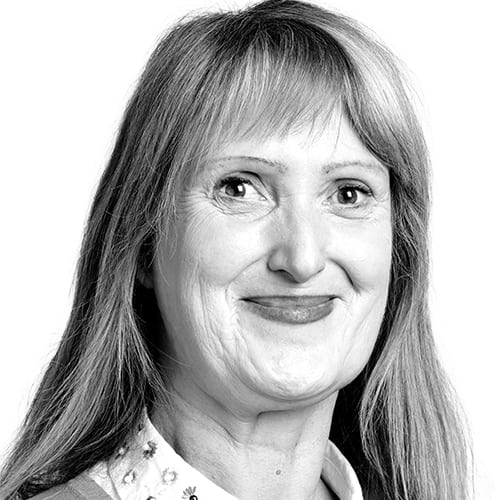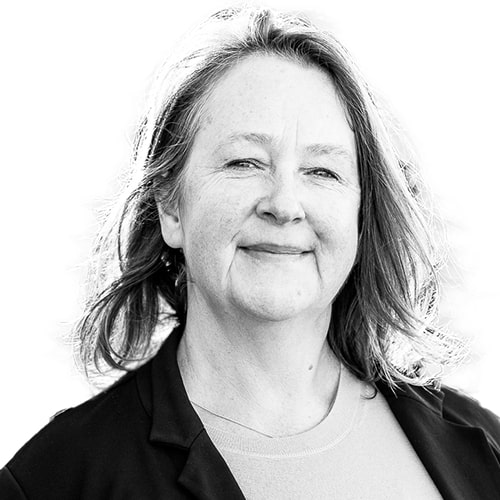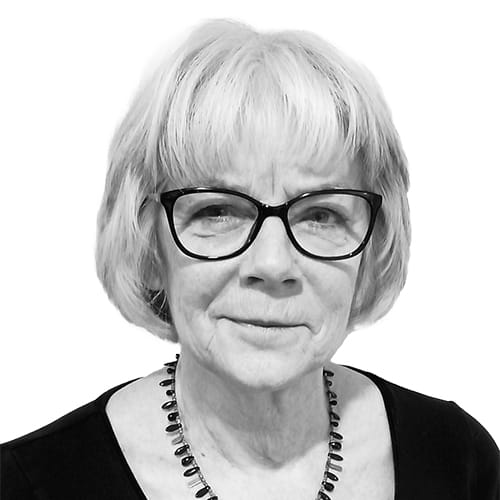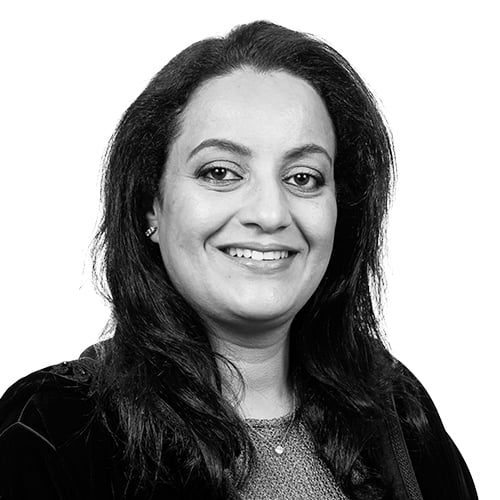Councils have a key role to play in ensuring all voices are heard
Local government plays a critical role in reducing inequalities and enhancing inclusion and cohesion within communities.
But as councils gear up to mark the 115th International Women’s Day on 8 March, it remains the case that the membership – and leadership – of many remains predominantly male.
Women make up around 35 per cent of all councillors in England and Wales, and just 21.5 per cent of leaders and 25.6 per cent of group leaders.
Within those figures are big regional variations. Just three out of 36 council leaders in the East Midlands (8.3 per cent) and three out of 21 in Yorkshire and Humber (14.3 per cent) are women, compared with 12 out of 39 in the North West (30.8 per cent) and 10 out of 30 in London (33 per cent).
The figures are a little better for deputy council leaders, with women accounting for 37.5 per cent of positions overall in England and Wales, and half in London and Wales.
As the contributions here (see below) from women deputy leaders make clear, the gender gap on councils matters, because male-driven policy may not be meeting the needs of all the communities councils represent.
Listening to and representing all residents can help make sure places are safe and inclusive, and provide new solutions to the problems they face – a common theme highlighted by our contributors.
The LGA provides a range of resources to help councils with their work on equalities, diversity and inclusion, including training for officers and councillors – see our equalities hub for more information – while our Be a Councillor campaign aims to improve the diversity of people standing for election.
International Women’s Day (IWD) is a global day celebrating the social, economic, cultural and political achievements of women. The day also marks a call to action for accelerating gender parity. Marked annually on 8 March since 1908, this year’s theme is #EmbraceEquity, and aims to drive worldwide understanding of why equal opportunities aren’t enough.
‘We need to listen’

Councillor Rachel Carnac (Con) is Deputy Leader and Cabinet Member for Corporate at Canterbury City Council
I’m not sure being a deputy automatically leads to being a leader; it would be interesting to know how often that happens. I’m very happy being deputy leader but I have had some issues with ‘imposter’ syndrome, despite being in my 50s and co-running a business for 20 years.
I was appointed in autumn 2020 and it was straight into budget setting. I had had some involvement in that the previous year because I was chair of a strategic committee. Even so, I was thinking ‘oh, can I do this?’ But of course, you get over that and do the job.You have to think, ‘why was I selected as deputy by the leader?’ – presumably because they wanted to use my abilities and skills.
Women quite commonly say ‘I don’t know if I would be any good’, but you need to look at what you do in your life – in work, as a mother or carer – because those are transferable skills.
Once you get to a leadership position, the issue is balancing your time – trying to do your job and go to lots of meetings in the council and your ward work and party work.
We definitely need to get more younger people coming in, and people of all backgrounds, not just women.
One of the important things about having women in leadership roles or people with different perspectives is that policy can be very male-driven at national and local level.
Even simple things like assisted bin collections, having more benches, how people travel – some in the community understand the need for those much more than others.
You have a minority of people who are always going to be active, but it’s when you hear the voices of people who don’t speak very loudly that you hear the issues they are struggling with. Those are the people we need to get hold of and listen to otherwise we are developing policy for a very narrow group of people.
The more views you have, the more diverse your council is, the better. We should all have our views represented and we should not be leaving anyone behind in our wards.
‘Communities need leaders with compassion’

Councillor Zoe Nicholson (Green) is Deputy Leader and Cabinet Member for Finance and Assets at Lewes District Council
We are in a co-operative alliance with my Liberal Democrat, Labour and Independent colleagues here in Lewes, where leadership rotates between the largest groups (Green and Lib Dem).
I didn’t come to local government politics with the intention of being leader or deputy leader, I came to the role of being a councillor, as I feel that our communities need leaders with compassion and ways of solving problems together that aren’t present in our discussions and debates between the bigger two parties.
The problems facing our communities and planet won’t be solved by polarised debate of ‘I’m right and you’re wrong’.
The climate, ecological, and now cost-of-living crisis won’t get solved by the same thinking that created it, so we need community leaders who are prepared to work collaboratively with others to find new solutions to the issues we face.
With that as the backdrop for standing in May 2019, I have found myself co-leading the creation of an alliance of groups to run the council.
It’s been a privilege and honour to serve my community in this way, and humbling to see the way our community responded with such compassion and resilience to the pandemic and now the cost-of-living crisis.
It’s not been without its challenges; many times, I have been one of two or three women leaders among other leaders in public and private meetings.
With women representing only 35 per cent of all councillors, it still shocks me that I am often surrounded by so many more men.
Having had a long career in the NHS where women are often in visible leadership roles, I have sometimes been taken aback by both the age and gender imbalance that exists in local government.
We need to make the role of councillor attractive to women of all ages and backgrounds, by supporting them with child care payments; setting allowance levels appropriate to the role; thinking about the scheduling of council meetings; and providing flexible roles for women in cabinet positions.
Most of the women I have worked with are also working councillors; juggling family, work and so many other commitments, they are busy and successful community activists and leaders.
My role as leader/deputy leader is in many ways my most fulfilling role to date: with my officer and councillor colleagues, we have been able to steer a path with our community that creates a greener, fairer community for all.
I do hope more of my fellow women leaders in communities will join me in this deeply satisfying and important role as councillor and leader.
‘The element of surprise’

Councillor Liz Leyshon (Lib Dem) is Deputy Leader and Lead Member on Finance and Human Resources at Somerset County Council
The best thing about being a councillor is the title.
To my knowledge, no one has come up with a feminisation of ‘councillor’. Nothing annoyed me more when I was working as a theatre and cinema manager than being called the manageress.
I’ve been Deputy Leader at Somerset County Council since May 2019, and am Lead Member for Finance and HR. Fortunately, I had four years as opposition spokesperson on finance and that has helped my understanding as we have worked so hard to propose a balanced budget.
Anyone in an upper tier authority knows that the financial situation is what’s generally called challenging, and it’s not looking any easier from 2024 onwards.
So how has it been to be a woman at this time, when many of the executive members for finance are men with work experience in financial services, and/or long experience as a councillor?
Clearly, it’s not easy, but is that because I’m a relatively inexperienced woman?
Personally, I’ve always found my work easier as a woman, partly because it’s easier to care about other people and be accepted in that role, and partly because it gives you the element of surprise.
I have fond recollections of the reaction of some big-name performers at my middle scale theatre in Somerset when they found out it was me who negotiated the contracts.
In my lighter moments I refer to local politics as being very similar to working in a theatre: lots of amateur dramatics and a bit of stand-up comedy. But it’s very serious right now. While I have no ambition to be leader, I have huge ambition for my home county, and want us to rise above everyone’s expectations as we approach Vesting Day and the creation of the unitary Somerset Council.
I would say that the relationships in theatre and film between director and producer best describe my position. The director has the vision, the producer makes it possible.
The producer/lead member for finance needs to be the check and balance to the director/leader of council, working mostly behind the scenes to keep things under control and being most successful when they are least seen.
Of course, we are not elected to be officers of the council. We are there to give political direction and work with our group to establish and deliver the ambition. That’s my job now, supporting Cllr Bill Revans, Leader of Somerset County Council, soon to be Somerset Council.
‘A safe and inclusive place’

Councillor Aicha Less (Lab) is Deputy Leader and Cabinet Member for Communities and Public Protection at Westminster City Council
I have always lived and worked in Westminster; it is part of my DNA.
What I love about the city is its rich history and how so many different people from so many backgrounds call this place their home.
I was first elected in 2016, holding various positions including deputy leader of the opposition.
Then, in last year’s local election, Labour gained a momentous win – the first in the council’s history. It was a night full of emotion and even after a well-earned rest, it still took a few days for that realisation to sink in.
That’s when the hard work really started: working out how to deliver our manifesto pledges while getting a grip with all aspects of council services.
As a group we were new to this, but we had waited for such a long time for this moment and
making a real difference to our communities is still such a motivating factor.
I was elected as Deputy Leader, alongside Cllr Tim Roca, and offered the role of Cabinet member for Communities and Public Protection. Both areas cover frontline services, something important to me, and it is brilliant that we have already delivered several of our pledges.
I am dedicated to making Westminster a safe and inclusive place that really listens to the opinions and ideas of our residents. After all, they know their communities better than anyone else.
Tackling inequality, ending violence against women and girls, and ensuring our residents are safe is especially important to me.
Now more than ever, it is crucial to come together and empower women of all communities to stand up to the perpetrators and make that real difference.
Empowering women to become leaders in their communities, homes, and work, and fight for what they believe in is something I am truly passionate about.
I hope that when young women see me in one of London’s biggest local authorities, they can see themselves achieving similar things in politics.
In my role, no two days are the same and I continue to grow and learn each day. There are challenges along the way, but there is always a solution and that’s what makes me take pride in my work.
I am so proud of how much we have already achieved since May and having a cabinet that is reflective of our residents is a step in the right direction to making a fairer Westminster. But we are only just getting started!